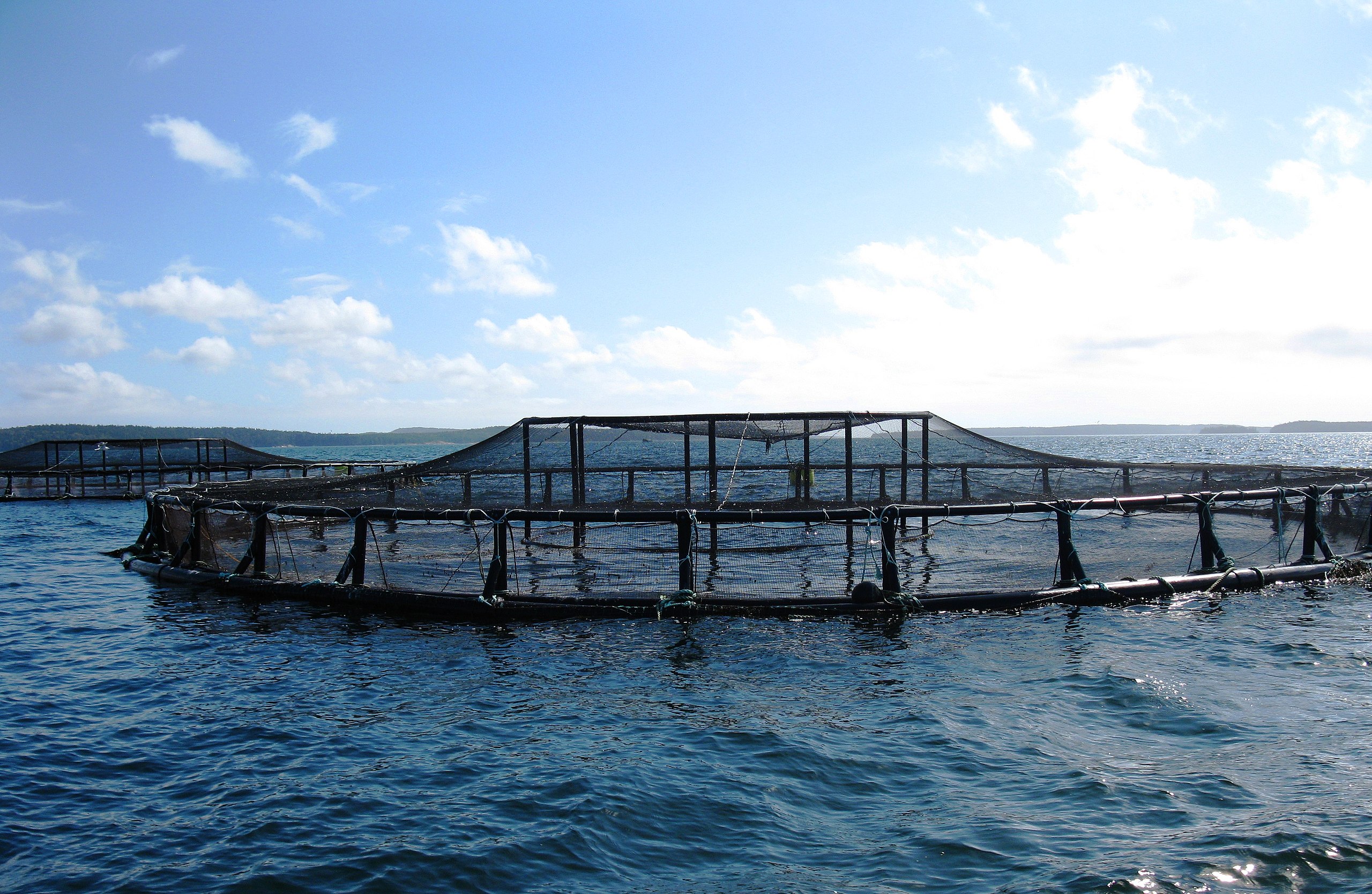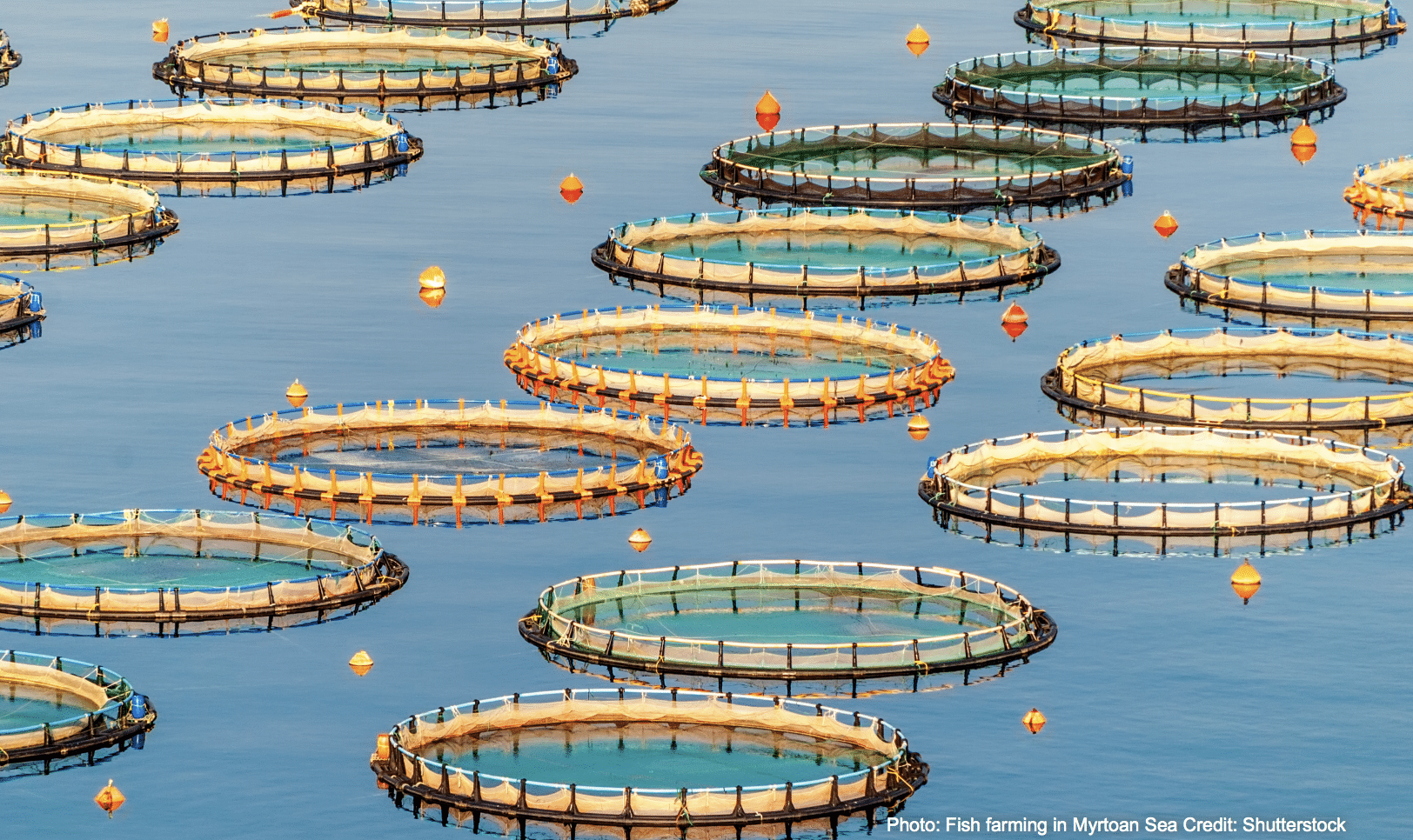
Proposed senate bill would turn oceans into fish feedlots
The Trump Administration is making a huge push to bring destructive and polluting industrial ocean fish farming to U.S. waters.
Industrial ocean fish farming — also known as open ocean or marine finfish aquaculture — is the mass cultivation of finfish in net pens, pods and cages. These underwater factory farms pollute our oceans, threaten native wildlife, produce unhealthy seafood and harm wild-capture fishing and coastal communities.
The push to commercialize our oceans is coming from all facets of our government. The National Oceanic and Atmospheric Administration offered millions of dollars to net pen farming startups, potentially without any prior environmental or endangered species analysis. Trump’s version of “National Oceans Month” (June) places a high priority on opening our waterways to floating factory farms. And despite the myriad environmental, socio-economic and public health threats from this disastrous industry, we have witnessed Congress cater to net pens, by hosting pro-industry briefings and hearings where insiders cheer the purported “benefits” and “sustainability” of net pens.
And now, Sen. Roger Wicker (R-Miss.) has introduced a bill that would establish a permitting system for industrial ocean fish farms in U.S. waters. The Advancing the Quality and Understanding of American Aquaculture, or AQUAA Act, would amend the Magnuson-Stevens Fishery Conservation and Management Act — a law that was originally passed with the purpose of protecting our oceans and wild fish stocks — to place net pen regulation under NOAA’s jurisdiction, an agency that should be dedicated to ocean sustainability and conservation. Wicker’s bill also contains language that would allow mega-corporations to directly pollute our waters and administer agricultural drugs and other chemicals, all with very little restriction on the types of fish species that may be farmed.
Sen. Wicker is also propping up his industrial ocean fish farming bill with a number of myths about the purported benefits of open ocean aquaculture.
Let’s debunk those myths.
Myth 1: Open ocean aquaculture will feed the world.
Facts: Despite claims to the contrary, these massive commercial fish farms are not built to feed families or impoverished communities. You won’t find farmed mahi or cobia in a school cafeteria, senior center or correctional institution. These fish are farmed for expensive, exclusive restaurants, not to feed the masses.
Myth 2: This will resolve the seafood trade deficit.
Facts: Most seafood consumed in the U.S. was produced in another country. Wicker’s bill also claims to resolve this seafood trade deficit, assuming that hosting feedlots in our oceans will keep the produce in our borders. But the U.S. also exports a significant amount of seafood, and this bill does not speak to where the farmed fish will eventually go. There is no guarantee that fish farmed in the U.S. will stay in the U.S.
Myth 3: Job creation.
Facts: Aquaculture is one of the country’s most dangerous jobs due do the isolated locations visited and harsh marine conditions like strong storms, winds and tides. And the industry has started utilizing remote feeding and monitoring technologies so that very few employees are actually needed to operate the farm. In contrast, the wild-capture fishing industry supports over 1.5 million jobs in the United States, and will undoubtedly be damaged by the presence of fish farms taking up limited marine space.
Myth 4: Our wild-capture fishing industry and coastal communities will be protected.
Facts: This is folly. There are not enough protections in the world to truly provide security from factory farms anchored to the seabed. Each facility will take up hundreds of acres of limited marine space that will no longer be available to others. The harm to surrounding ecosystems and marine life will impact the availability of healthy fish stocks for harvest. In addition, the mega-corporations controlling the industry will base their business on the factory farm model, culturing as many fish as possible, as cheaply as possible. This will drive down seafood prices, and impact the amount that fishing communities can collect for sustainably harvested produce. Wicker’s bill is completely silent on these points.
We’ve seen how the industrialization of our oceans results in environmental havoc, and we have seen net pens in state waters cause disastrous fish spills and the deaths of endangered species. There is every indication that these floating feedlots will follow suit, endangering the ocean and everything living in and near it for corporate profit.
Sign our petition today: tell your representative to oppose the AQUAA Act.
Related Posts
Ways to Support Our Work

Read Latest News
Stay informed and inspired. Read our latest press releases to see how we’re making a difference for the planet.

See Our Impact
See the real wins your support made possible. Read about the campaign wins we’ve fought for and won together.

Donate Today
Help power change. It takes support from environmental champions like you to build a more healthy and just world.
